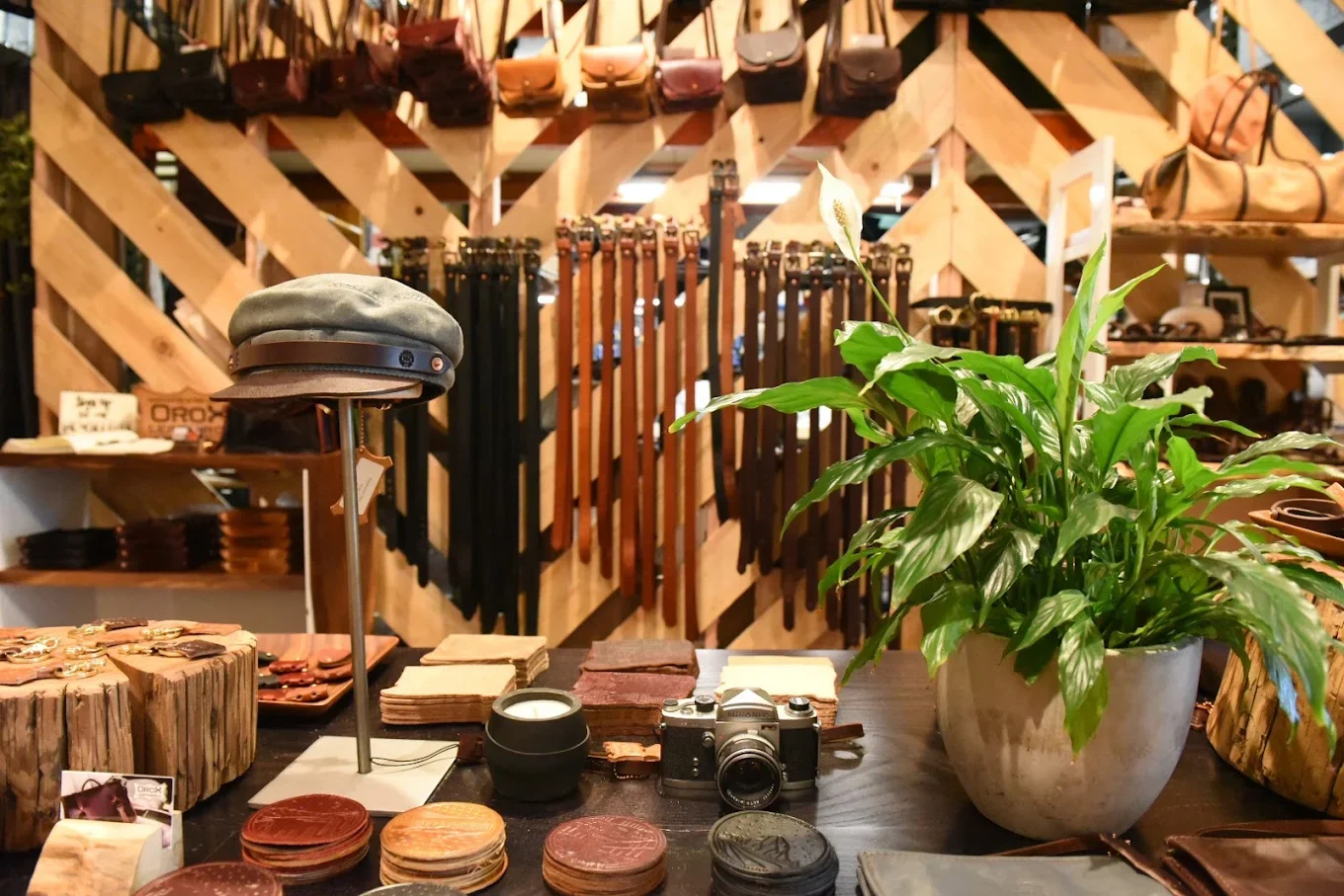聚焦:Orox Leather Co.
Orox 紮根於 Oaxacan 傳統,並由俄勒岡州的創造精神所塑造,將傳統技術與現代設計融合,創造出終生不變的皮革製品。從手袋和錢包到皮帶和日常必備品,每一件都是精心打造,歷久彌新。在快速時尚的世界裡,Orox 代表著品質、永續性,以及可以世代相傳的藝術性。波特蘭小型企業辦公室與 Orox Leather Co. 的 Levi 進行了以下訪談。
告訴我們關於 Orox Leather Co.
Levi:我們的故事一部分來自俄勒岡州,另一部分則要追溯到我曾祖父的四代祖先。他因為熱愛棒球而開始製作皮革飾品。他製作手套和其他裝備的技術非常嫻熟,以至於他能夠贊助自己的球隊。我不知道他們做得有多好,但我必須假設他們是其他球隊羨慕的對象,因為他們有手套和其他皮革裝備!
我的祖父是棒球隊的球員,他學會了皮革製作,並決定自己創業製造皮革涼鞋。我們家現在還擁有那家店曾經所處的房子,我也曾親身到過那裡。我父親延續皮革傳統,也開始製作皮革壁畫。他在全國各地巡迴展覽,認識了一群日本商人,他們邀請他到日本的頂級皮革工坊工作。在那裡,他學會了日本的設計 - 極簡、簡潔、注重壽命。
Orox 在我哥哥就讀波特蘭州立大學時才誕生。在他大四那年,他被要求想出一個他會熱衷的事業。他看到波特蘭的人們非常重視手工製作、當地採購的商品,他想到了我們父親的皮革工作。這激發了他在俄勒岡州開設皮革企業的靈感。在命名時,他將代表俄勒岡州的 "OR 「和代表瓦哈卡州的 」OX "結合,創造出四個字母的名字Orox。
一開始,我們製造可調整的涼鞋。之後,我們開始製作錢包和手袋,並很快意識到人們一年四季都可以購買配飾,而涼鞋只在夏天才有銷路。因此,我們轉向生產全系列的皮革飾品。
波特蘭如何塑造您的企業?
Levi:波特蘭為我們打開了一扇大門,讓我們可以創造本地製造的商品、在這裡保留我們的工作室,並展示我們的工藝。波特兰的人们希望看到我们继续在这里制作工艺品,并希望支持本地制造的东西。
如果可以回到起點,您在剛開始創業時會有哪些不同的做法?
Levi:當我們開設工作室時,我們同時推出了商店、新產品系列、線上商店和批發。我們有超過 60 種不同的產品!所以,我想說:放慢腳步。一次只做一件事,建立一個穩固的產品,投入你所有的資源,然後從那裡開始成長。
您最享受小型企業的什麼?
Levi:我很享受這樣的機會,不僅能引導人們學習皮革製作,還能與顧客溝通,獲得正確的回饋。這門生意讓我們能夠非常靈活地回應顧客和員工的需求。
您的社區扮演什麼角色?
Levi:我們的社群是由一群熱愛文化的人所組成 - 不僅是他們自己的文化,也包括其他文化。我們的客戶透過體驗尋求知識。他們到瓦哈卡或日本旅行,不只是為了帶些東西回來,而是讓自己沉浸在這些體驗中。這種開放的態度讓我們的社區如此強大。
到目前為止,您最大的成功是什麼?
Levi:我們的成功在於我們的適應能力。我們在 COVID 期間看到了這一點,當時我們仍能以一個小團隊進行銷售,並在社區中保持活躍。身為小型家族企業,將員工融入這個大家庭,也讓我們變得更堅強。
您最大的挑戰是什麼?
Levi:由於我們是一個小型的家族企業,所以我們必須一步一步來,並確保業務方面能充分發展。最大的挑戰是要為自己準備正確的工具、知識和網路。我們邊做邊學。有時候,我們會因為想要一次過做太多事而造成挑戰。
對於剛開始創業的人,您有什麼好的建議?
李維找到你想專注的一件事,並百分百投入。一旦我們找到了那一個產品,就很容易從那裡開始擴展。如果你想處理太多事情,你就會失去重點,不知道你的精力應該放在哪裡。因此,先鎖定您想要推動的一項服務或一項產品,然後再從那裡開始擴展。


